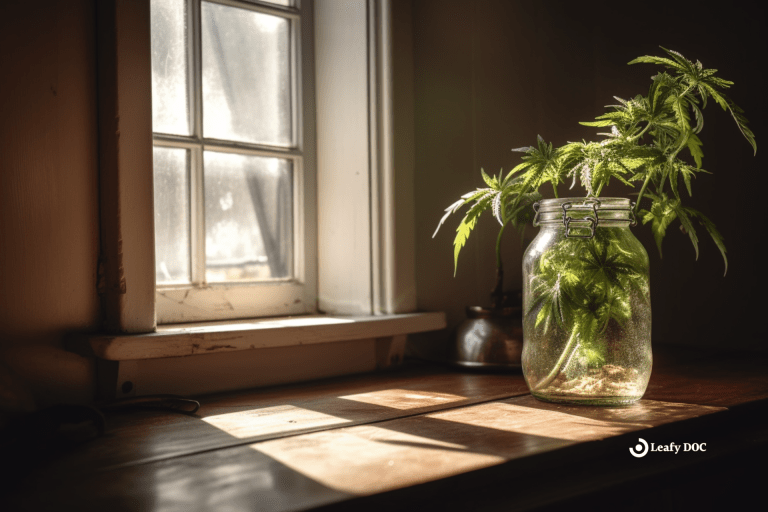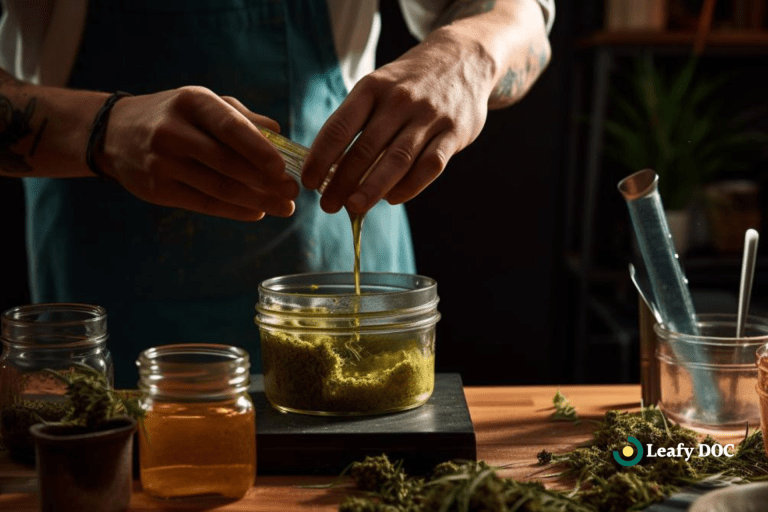Skin Ulcers & Wounds
Can medical cannabis help with symptoms of skin ulcers or wound care? Find out below.
What are Skin Ulcers?
Skin ulcers and wounds are two skin injuries that can cause significant discomfort and pain. A skin ulcer is an open sore that develops on the skin, often due to a long-standing condition or injury. These sores can be deep and painful and usually take a long time to heal. On the other hand, skin wounds are injuries to the skin that a variety of factors, such as trauma, burns, or surgery, may cause. These wounds can range in severity from minor cuts and scrapes to more significant injuries that require medical attention.
Are there signs & symptoms of Skin Ulcers?
Yes, there are signs and symptoms of skin ulcers. The most common symptoms of skin ulcers include the appearance of an open sore that doesn’t heal, pain or discomfort in the affected area, redness or inflammation around the sore, and skin that feels warm or hot to the touch. The skin around the ulcer may become discolored or develop a crust or scab. Skin ulcers may also produce a foul-smelling discharge or fluid. If left untreated, skin ulcers can infect, leading to additional symptoms such as fever, chills, and overall malaise. It is essential to seek medical attention if you suspect a skin ulcer, as prompt treatment can help prevent complications and promote healing.
Diagnosis & Treatments
Both skin ulcers and wounds require proper care and treatment to prevent infection and promote healing. It is essential to keep the affected area clean and dry and to seek medical attention if there are signs of infection, such as redness, swelling, or pus.
Types of Ulcers
Ulcers are open sores that can occur on internal and external parts of the body. They can be mild or severe. An ulcer is a type of crater-like wound and can develop outside or inside the body. Ulcers develop when tissue erodes, which has a variety of causes, but luckily there are successful treatment options. Depending on the affected area, ulcer symptoms can include pain, nausea, heartburn, or itching. Treatment may consist of acid reducers, antibiotics, antiviral drugs, lifestyle changes, and in extreme cases, surgery.
There are seven primary types of ulcers: arterial, diabetic foot, esophageal, genital, mouth, peptic, and venous. Let’s learn about some skin ulcers and their causes, symptoms, and treatments.
Diabetic Foot
A diabetic foot ulcer will appear as an open wound, commonly on the bottom of your foot. The injury may look like this:
- odor filled drainage
- tissue discoloration
- calluses
- swelling
- blisters
- continuous pain
Doctors typically prescribe antibiotics to treat diabetic foot ulcers. They may also need surgery to address restricted blood flow to the area or remove any calluses and dead or infected tissue.
Genital
The leading cause of genital ulcers are sexually transmitted infections (STIs), including:
- herpes simplex virus
- syphilis
- Chlamydia
Another rare cause of genital ulcers is Behçet’s inflammatory syndrome. The symptoms of genital ulcers will vary depending on which STI caused them, but they can cause illness, fever, and itching. Doctors may prescribe antiviral medications, antibiotics, or pain relievers.
Venous
Two conditions that affect your veins cause venous ulcers.
- Chronic venous insufficiency: The leg veins are not effectively sending blood to the heart
- Venous hypertension: There is increased pressure in the veins
Venous ulcers are irregular, shallow open wounds on the legs that form over the ankle and lower leg bones.
Symptoms of venous ulcers include:
- brown discharge
- rash
- pain
- itchy skin
- varicose veins
- spider veins
- inflammation
Treatment for venous ulcers includes:
- Compression therapy involves using hosiery or bandages to apply gentle pressure to the leg, promoting better blood flow.
- Wound care: Keeping the wound clean and avoiding infection is essential to promote healing
MMJ & Skin Care
Medical marijuana is commonly found to possess significant anti-inflammatory and antioxidant properties, which can quickly help with chronic pain management and nausea. Cannabinoid receptors within a cannabis Sativa plant bind to the brain and peripheral nerve cells and help regulate how you see and feel the pain to reduce symptoms like inflammation, nausea, vomiting, and severe pain.
Medical marijuana use, unlike other non-cannabinoid drugs, is an excellent alternative to treat patients and manage pain due to nerve damage or chemotherapy and other treatments. Its medical use can also promote appetite and healthier sleep patterns.
CBD, THC, and other cannabinoids could benefit this condition through ointment and oils, creams, salves, or moisturizers to relieve pain and inflammation, provide skin hydration, and stop the irritation of those red patches of skin cells. Some researchers believe topical cannabis products can potentially treat the most common skin disorders. Medicinal marijuana is also known for its anti-inflammatory properties for the skin.
Can medical cannabis help?
The cannabinoids found in the cannabis plant can activate the endocannabinoid system in the human body and may help many chronic issues, including skin ulcers. Cannabis activates CB1 receptors in the central nervous system and CB2 receptors in organs, muscles, and tissues. Cannabinoids can directly influence our ability to maintain homeostasis.
MMJ Patients with Skin Ulcers may see the following benefits:
- Pain management improvement
- Decreased anxiety and depression
- Appetite Increase and regulation
- Reduced need for regular steroid use
- Decrease in diarrhea
Medical marijuana is commonly found to possess significant anti-inflammatory and antioxidant properties, which can help with chronic pain management reasonably quickly. Cannabinoid receptors bind to the brain and peripheral nerve cells and help regulate how you see and feel the pain to reduce symptoms. Medical cannabis, therefore, as opposed to other drugs, appears to be an excellent alternative to treat and manage pain due to inflammation.
Recent studies from medicine and health sciences professionals suggest that certain cannabis products may effectively treat an overactive immune system. It can connect with the cannabinoid receptors of the body to combat the proinflammatory t-cell responses needed. It has been used to treat rare skin conditions, Crohn’s disease, neuropathic pain, particularly autoimmune disease, inflammatory bowel disease, acute psychosocial stress, and many others. Maintaining homeostasis in the body will make you less likely to develop future ulcers. We recommend discussing MMJ options for skin ulcers and wounds with your doctor if you want a new treatment plan.
Last Updated: June 14, 2024
Get Your Medical Card
Connect with a licensed physician online in minutes
Table of Contents
Keep Reading
-
The Connection Between Cannabis & Appetite
Learn about the link between cannabis and appetite, including how it can increase appetite and why it may be beneficial for some people.
-
Is Marijuana A Blood Thinner?
Uncover the truth about marijuana’s blood thinning properties and their potential impact on your health. Click now to learn more and stay informed!
-
Mastering Cannabis Cooking Techniques: Tips And Tricks
Learn how to master cannabis cooking techniques with these expert tips and tricks. Elevate your dishes with infused flavors and create delicious meals today! Click now to level up your culinary skills.



